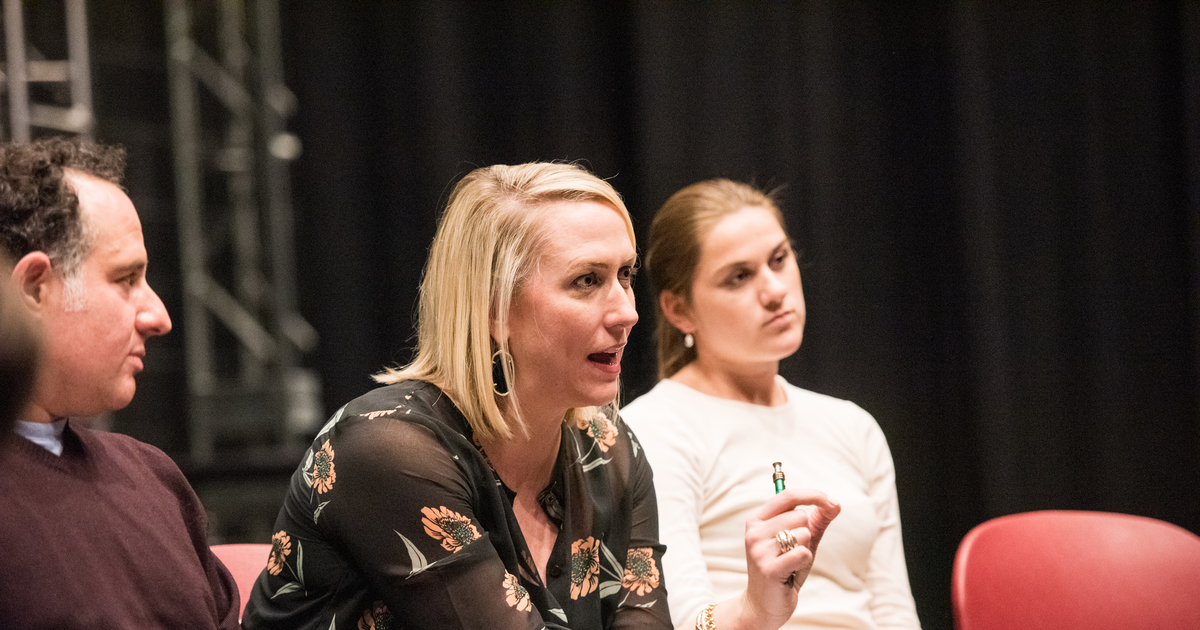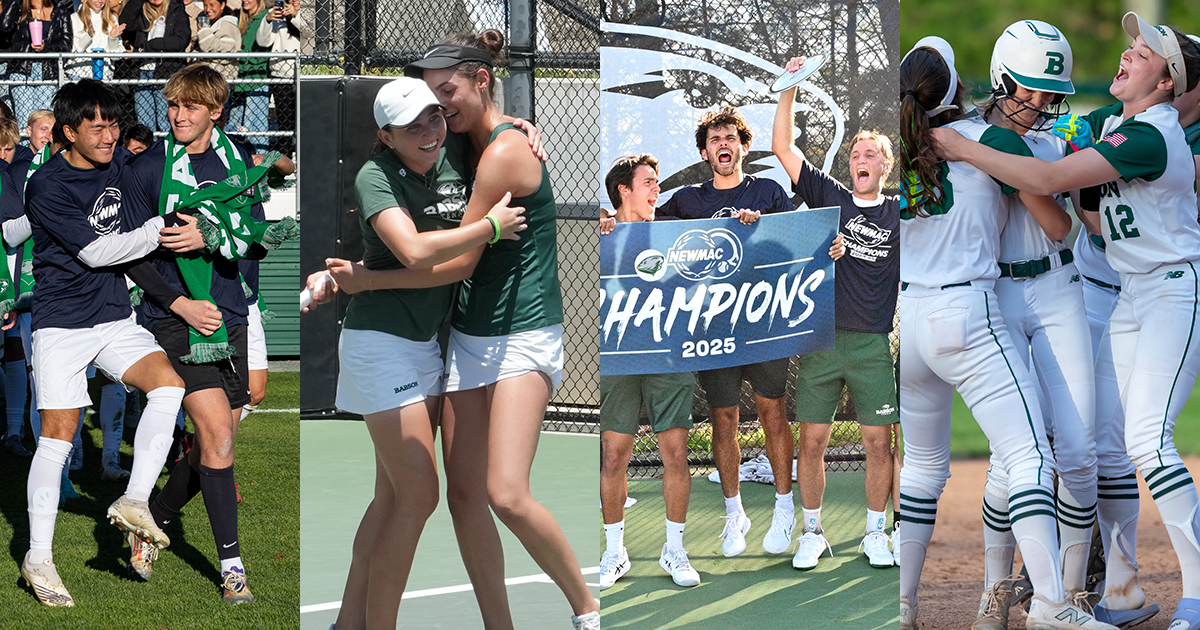What Is the Future of Live Theater?

Broadway went dark on March 12, 2020, followed by an announcement in June that it will remain closed for the remainder of this year.
It’s just one of the many industries hit hard by COVID-19 and social distancing guidelines.
“It’s been devastating. When you’re in an industry that relies on—thrives on—live bodies in a space, when that goes away, it changes everything,” said Babson College Assistant Professor, Beth Wynstra.
Wynstra teaches courses in American Drama, Acting, Modernism, and Rhetoric at Babson and is the founding artistic director of The Empty Space Theater at Babson.
She points out that the energy that happens between the audience and actors cannot be replicated in a non-live setting, yet, the work of theater goes on.
“It’s not on a traditional stage, and in a traditional theater building, but creating characters—and telling stories—has still continued, even in the digital space,” said Wynstra.
The Future
Broadway’s closure has led many to think about where the industry will go from here.
“I just don’t think the current model is sustainable. Shows like Hamilton—when it’s $400 a ticket to go to a show—it’s just not good business. They are shutting out the very people that need to see what is on these stages,” she said.
“We’ve had a complete change from a political and social standpoint.”
Assistant Professor and Artistic Director of The Empty Space Theater, Beth Wynstra
Wynstra hopes that COVID’s disruption will spark a more equitable model for producing and delivering live theater, such as four-season outdoor performances, making theater more accessible, reaching a more diverse clientele, and cleaning up theater spaces.
“Broadway is starting to think more imaginatively. We’ve had a complete change from a political and social standpoint. New ideas are now in the forefront around race and equality, and I wonder how that will shape what producers want to do,” said Wynstra.
Adjusting to Virtual Theater
In July, Disney+ started streaming the Broadway musical Hamilton, canceling its theatrical release which had been scheduled for October. The move shows signs of hope—and interest—in live theater delivered virtually.
“I’m so excited that especially young people are watching this and experiencing the dancing, choreography, singing, and great casting choices, and seeing that you can be a lot more imaginative in the theater than you can anywhere else,” said Wynstra.
Yet, she still distinguishes between live theater and virtual.
“I did miss seeing and hearing the audience because so much of theater is seeing the person next to you breathing, sighing, crying, and laughing.”
A Time to Think Broadly and Imaginatively
While there are artists of different races and gender identifications, theater is still a white male-dominated field.
“You can see that in the dominant theater owners and major producers, but also in the shows that the theater companies are choosing to produce in their theater seasons,” she said.
Wynstra explains that theater artists are constantly used to pivoting, and changing. And, maybe, just maybe, this is an evolution rather than a pause.
“The political revolutions happening around Black Lives Matter, around gender and #MeToo, and intersecting with COVID, give me hope for important ramifications,” she said.
Altered States
Closer to home, the Babson Alumni Players, put on a livestream performance of Shakespeare’s Comedy of Errors last month. The one-of-a-kind performance received rave reviews.
Later this year, Wynstra is set to produce her first virtual play at Babson. Called Altered States, it is a series of monologues she adapted for virtual theater because of their cultural relevance.
“It’s a different way of directing, but at the same time, it’s the same. I’m going to be working with actors as they try to connect to their characters, and make them viable. We’re doing this in a new space, but, the work of theater continues.”
Posted in Community





